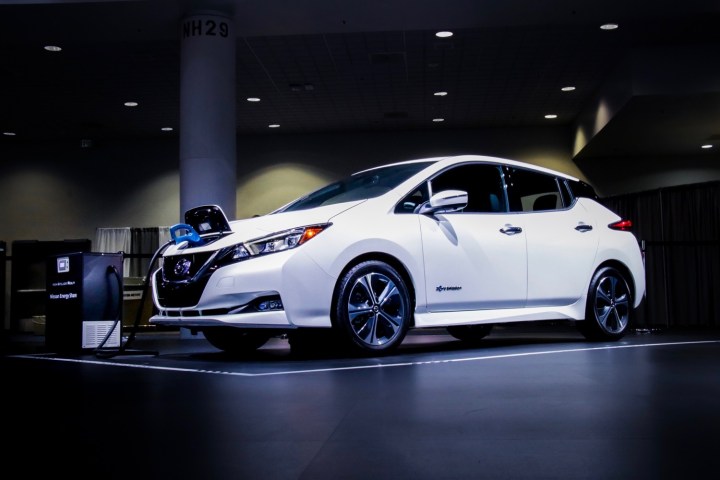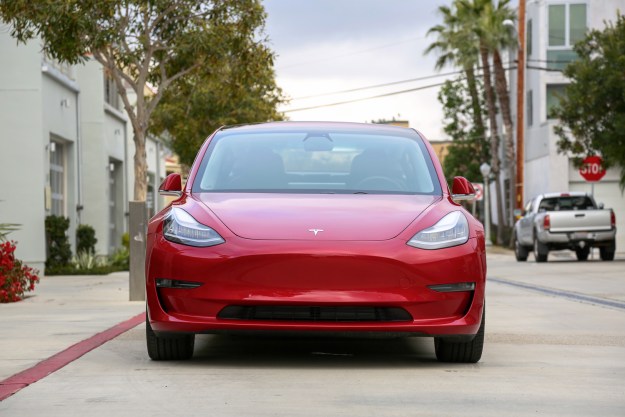
When modern electric cars first hit showrooms in large numbers about a decade ago, one of the biggest questions about them was battery life. But Nissan hopes to finally put those doubts to rest. After reviewing data from its Leaf electric cars, the automaker now believes batteries will outlast the vehicles they’re installed in by 10 to 12 years, Francisco Carranza, head of Renault-Nissan Energy Services, said at the recent Automotive News Europe World Congress.
Nissan monitors everything from charging patterns to battery degradation on more than 400,000 Leaf electric cars sold in Europe since 2011 (the first U.S. Leaf was delivered in December 2010), Carranza said. He added that the average life of a car is 10 years, but he estimated the average life of its onboard battery pack at 22 years. Batteries still tend to lose some of their capacity after they age, but it takes a long time for them to lose so much capacity that they become completely useless. Carranza didn’t say what the anticipated rate of degradation was.
Battery longevity is good news for Leaf buyers, but what happens to all of those still-usable batteries? That’s where so-called “second-life” uses come in. Batteries can be removed from electric cars and used as stationary power sources. In 2018, Nissan used 148 Leaf batteries (both new and used) to power Amsterdam’s soccer stadium, and even used Leaf batteries to power a camper.
An advantage of using stationary batteries as a power source is that they can increase use of renewable energy. Renewable sources like wind turbines and solar panels can generate more power than is needed at a given moment. Batteries can store that power for later use, allowing buildings to be powered by renewable energy even when the sun isn’t shining or the wind isn’t blowing. Nissan currently sells solar panels and stationary battery packs for home use in Europe, but Tesla commercialized the idea first and sells its home-energy products in the U.S.
Nissan is also testing ways for its electric cars to “balance the grid” by absorbing excess electricity during periods of low demand, and discharging it during periods of high demand. This saves wear and tear on grid infrastructure. A pilot program in Denmark run in concert with Italian energy company Enel could earn electric-car owners up to 1,300 euros ($1,454) for volunteering their cars as storage batteries, according to Nissan. The automaker claims the Leaf is already certified as an “energy plant” in Denmark, as well as Germany and the U.K. Similar projects have been tested in the U.S., but full commercialization will likely require rewriting of regulations.
In addition to making money for owners, new uses for electric-car batteries can make money for automakers and dealers. Electric cars require less maintenance than internal-combustion cars, meaning there are fewer opportunities for dealers to make money off servicing them. New forms of revenue from batteries could help make up for that, Carranza said.
Nissan isn’t the only automaker looking at potential uses for batteries outside electric cars. Nissan’s partner Renault is using them to help power two islands, while General Motors and Toyota have experimented with second-life battery uses, the latter with batteries from its hybrid cars. Hyundai expects to have so many leftover batteries from its electric cars that it will have to find alternative uses to avoid waste.
Editors' Recommendations
- The cheapest electric cars you can buy
- How much does an electric car battery cost?
- The pros and cons of electric vehicles
- Grounded for years, the Lucid Air electric car is finally ready to fly
- Tesla’s new million-mile battery could finally make electric cars affordable


